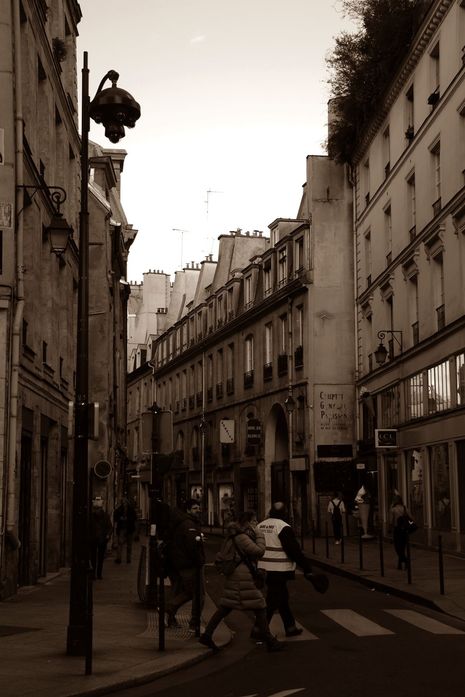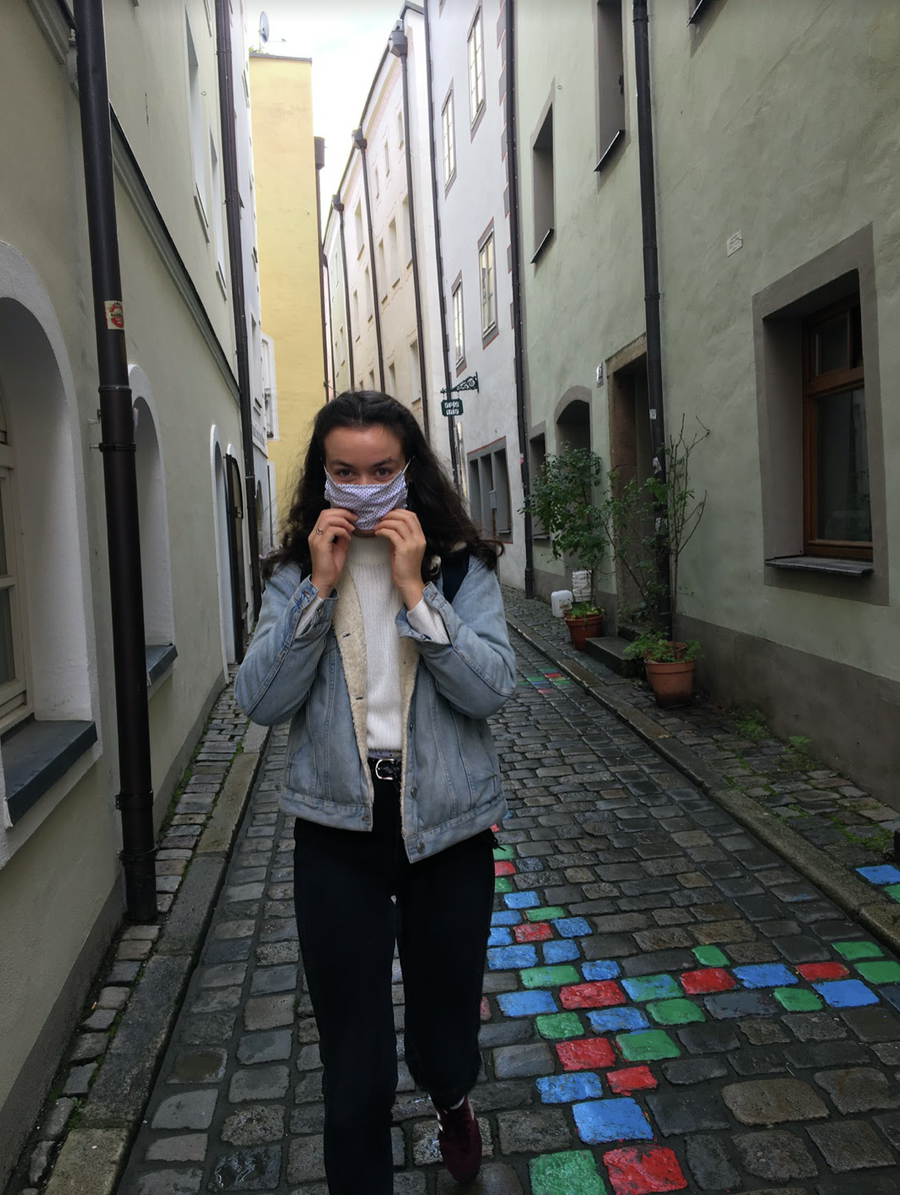Emily in Paris Gets Something Right
Jules Graham talks about how her perception of Paris was changed by some negative experiences and new realisations on her year abroad

Content Note: This article contains detailed discussion of sexual harassment, and mentions of racism, homophobia, transphobia and abortion.
Netflix recently released the TV show Emily in Paris, which follows the life of a young American girl who moves to Paris for work, despite not speaking any French. It offers a romanticised view of the city; Emily lives in a luxurious apartment in the centre of the city, she always happens to accidentally end up at famous landmarks, everyone’s ridiculously nice, and the city looks mesmerising through her @EmilyinParis Instagram account. The show received a lot of backlash at the time from French critics for being wholly inaccurate and its use of stereotypes was called out, as was its complete sanitisation of Parisian life. What struck me more than the response of French critics was the response of expats: a whole host of ‘the real life of Emily in Paris’ memes sprung up mocking the metro system, the postal service, colocations, the gritty reality of the city. All the undersides of Parisian life that the show didn’t even touch upon. But more than just forgetting the daily annoyances of life in Paris, Emily in Paris forgot to mention what life is like here for people with marginalised identities.
One thing I noticed almost immediately after moving to Paris for my year abroad was the frequency of street harassments. It started with just feelings of being stared at, more openly than I could recall from before. When hanging out with other expats I would casually ask other British girls if they felt this increase too; I wanted to figure out if I was making it all up. Every time I asked the question, it was met with a resounding yes. The longer I stayed in Paris the more I realised it wasn’t just catcalling and being stared at in the street. I had men bothering me every lunch break to the point where I started pretending that I didn’t speak French. I had a man follow me for 20 minutes while I went to meet my friends, sitting right next to me on an empty metro and then walking 20 paces behind me once I exited the metro. A man tried to kiss me in a park, telling me I had eyes so pretty he couldn’t resist. Another tried to stick his hand down my trousers and even after I told him to leave he continued to stare and call after me. I even had a man kiss my neck and run his hands up my legs while I was very drunk on the metro. I was in a full carriage, begging him to stop, and no one did anything. My friend texted me she would be five minutes late to meet me; she had to switch metros to lose the man following her.
“I don’t want to live in a society where every time I tell someone my name (because it’s a male name here) people will literally make up a different name, because there’s a limited concept of gender fluidity.”
It still took a while before I fully registered that this type of harassment was just the tip of the iceberg. I only realised this when someone mentioned that there were protests taking place against the new bioethics law. This law attempts to make it legal for lesbian couples to receive IVF and for AFAB people to be able to freeze their eggs. I remember being completely floored, not by the fact people would protest such laws, but by the fact that these laws hadn’t existed until now in France. I had thought that moving from one western European capital city to another would be pretty similar in terms of the socially liberal political climate. Especially in a country that prides itself on “liberté, égalité, fraternité”. But no, looking more into the current state of French society left me feeling deeply uncomfortable. Respected magazines were publishing articles wondering if the French feminist movement was now bordering on “misandry” and debating whether the “young mother” (read: 15 year old girl) who gave herself an at home abortion would be tried for infanticide. A friend said to me that for a country that prides itself on its revolutionary nature, its insistence on revolt, they’ve got very little to show for it socially. He’s right, I felt like I had been lied to before living here.
People keep asking me if I want to come and live in Paris again once I’ve graduated. At first my answer used to be a timid ‘I’ll have to wait and see’. I was in love with the boulangeries, the warm weather, wine by the seine, even the metro. But now it’s a resounding no. I don’t want to live in the country where a girl I know “has never been called a dyke more in her life” or where my friend is stared down in the street because he’s not white. I don’t want to live in a society where every time I tell someone my name (because it’s a male name here) people will literally make up a different name, because there’s a limited concept of gender fluidity. I don’t want to come back to a country where as recently as four years ago you had to be sterilised to legally change your gender, and even now after doing so you have to readopt any children you already had. I don’t want to live in a country where laws that would ensure queer and women’s rights are still protested.
Watching Emily in Paris really brought home for me how unaware people are of the socially conservative nature of France, as I was reminded of the romanticisation of life in Paris and France. Emily runs around Paris in high heels, never being harassed, always eating a gorgeous pain au chocolat, accidentally having dinner at Café de Flore, living above the sexiest French man. It’s complete and utter fiction, but I think it’s almost the best approach, in a sense. Who would want to watch the real thing? Emily gets harassed on the metro? So, while it may be a misleading romanticisation of life in Paris, Emily in Paris got something right about my experience with the city, in that the best bit of Paris for me was how it looked on my Instagram story.
 News / University Council rescinds University Centre membership20 February 2026
News / University Council rescinds University Centre membership20 February 2026 News / Hundreds of Cambridge academics demand vote on fate of vet course20 February 2026
News / Hundreds of Cambridge academics demand vote on fate of vet course20 February 2026 News / Cambridge academics sign open letter criticising research funding changes22 February 2026
News / Cambridge academics sign open letter criticising research funding changes22 February 2026 News / Union cancels event with Sri Lankan politician after Tamil societies express ‘profound outrage’20 February 2026
News / Union cancels event with Sri Lankan politician after Tamil societies express ‘profound outrage’20 February 2026 News / Judge Business School advisor resigns over Epstein and Andrew links18 February 2026
News / Judge Business School advisor resigns over Epstein and Andrew links18 February 2026









